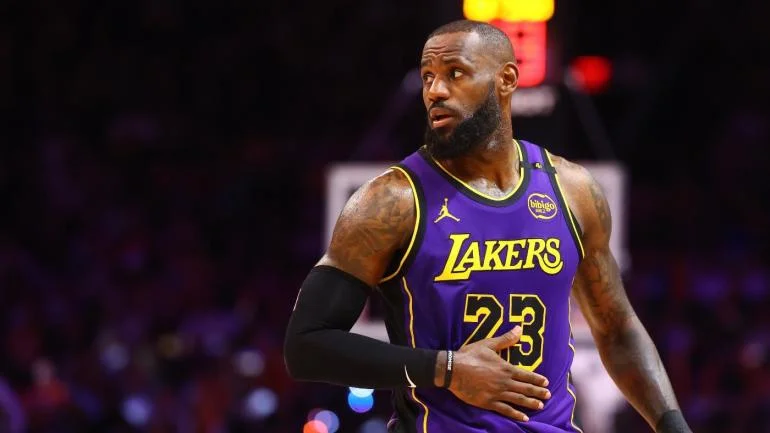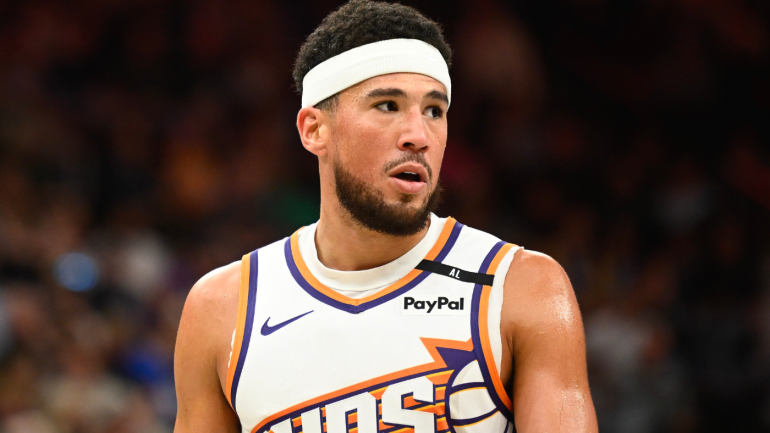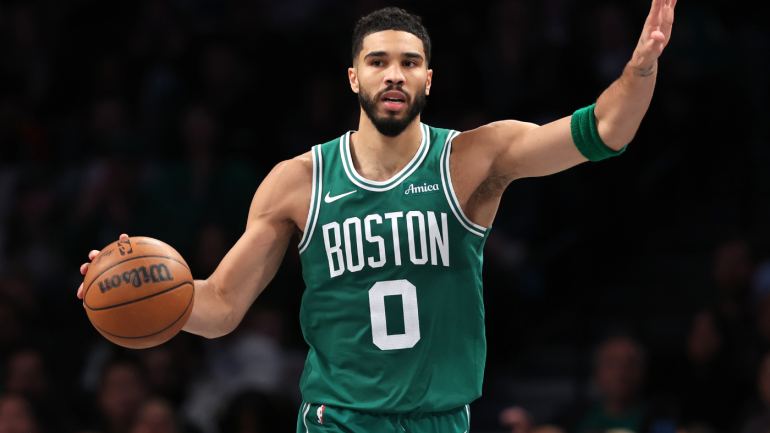The 2016-17 NBA season is officially over, with the Golden State Warriors beating the Cleveland Cavaliers 4-1. But now that it is, the Warriors and the Cavs join the other 28 teams in the offseason.
To help them out, let’s finish up our “offseason blueprint” series.
CLEVELAND CAVALIERS
Despite losing 4-1, LeBron James played one of the better Finals series that I can remember since watching the league. It felt like he carried this team, game to game, and attacked the rim so often that it may file a restraining order.
That said, I don’t agree with the narrative that LeBron doesn’t have “help.” This Cavaliers team is quite talented from top to bottom. You have two genuine All-Stars in Kyrie Irving (an elite ball handler and finisher) and Kevin Love (the type of stretch 4 rebounder/shooter that every other NBA team is after). Behind them, you have three other players in Tristan Thompson, J.R. Smith, and Iman Shumpert who are apparently good enough to earn eight-figure salaries ($10+ million a year).
The question is not whether the Cavs have a great team (they do), but whether that talent is constructed in a way that matches up well with the Golden State Warriors. For every other team in the league (aside from San Antonio perhaps), going toe to toe with Golden State is a pipedream. For Cleveland — it’s the only thing that matters.
Let’s see how they may be able to do that.
(1) Commit to defense
The Cavs’ defense played well in the early part of the playoffs, but it was a yearlong problem for them this season. Part of that is the composition of their roster – they’ve erred on the side of older shooters at the expense of their defense – but part of that is culture and coaching.
Ty Lue is allegedly a defensive-minded coach, but the team hasn’t played good defense for any consistent period of time. More concerning than the old bodies are all the missed assignments and confusions in coverage. Firing Ty Lue as the head coach would be tough from a PR and locker room perspective. However, the Cavs should consider hiring a new defensive assistant to coordinate their play on that end of the floor.
These “defensive coordinators,” so to speak, are popular and effective around the NBA, from Golden State’s veteran hand Ron Adams to Milwaukee’s young buck Sean Sweeney. The Cavs have no problem paying $140 million for their roster, so why not pay an extra million to lure in a top-notch defensive assistant? That prospective assistant would put himself in the limelight, and set himself up well for a future head coaching job as well.
The Cavs can also add some defensive-minded veterans to their collection of ring chasers. Players like Thabo Sefolosha, Tony Allen, and Matt Barnes may all be at the stage of the careers where they’d take the minimum to chase a title. You wouldn’t want to play them in a regular rotation, necessarily, but having that extra defensive wing available on the bench would come in handy in specific matchups. (Say vs. Kevin Durant and Golden State, for example.)
(2) Commit to development
Throughout his career, LeBron James – led teams have always gravitated towards older, veteran role players (and vice versa, obviously.) That’s been helpful in the playoffs in the past, but it’s also a limiting factor in terms of being able to sustain success with one organization without a slow decay of the secondary talent.
Outside of their top six players, the Cavs’ main role players this season were names like: Deron Williams, Richard Jefferson, Kyle Korver, and Channing Frye. All good solid vets: with the keyword being vets. The average age of that foursome is 35 years old. Obviously, those creaky legs don’t help on defense all that much.
It’s hard to blame the Cavs for relying on battle-tested veterans during the playoffs, but it’s inexcusable that the team never made a focused effort to develop younger talent. We’d hear some passing preseason hype about names like Kay Felder, DeAndre Liggins, and Jordan McCrae, but we’d rarely see them on the court.
Presumably, those young kids weren’t ready yet, but I’d ask – ready for what? The Cavs were coasting for a large chunk of the regular season anyway. If the team was content to stumble into the playoffs on a 23-23 stretch, then what’s the harm of using that time to give reps to younger players who may develop into something more?
It’s going to be harder for the Cavs to do this now because McRae and Liggins are gone, as are their first-round draft picks. There’s not going to be a lot of young talent to try to work with here. Still, there could be some players floating on the edge of the NBA landscape looking for a home at the end of the roster, and that’s where the Cavs can start panning for gold. Younger players like this may include: the Knicks’ Ron Baker (24), Boston’s James Young (21), Houston’s Troy Williams (22), Detroit’s Reggie Bullock (26), and Miami’s Luke Babbitt (27).
The Cavs’ secondary role players aren’t getting any younger, so it may be time for the team to start grooming the next generation of role player before it’s too late. The last thing you want to do is surround LeBron James with old, overpaid vets, and watch him get eyes for a younger beauty of a roster elsewhere. For franchises to stay contenders for the long haul, they need to generate a system that continually finds and develops young talent, a la San Antonio.
(3) Don’t commit to this core
As LeBron James ages, he’s starting to veer towards the power forward spot full time. In fact, I’d like to see more lineups where LeBron James plays CENTER. He did it for a few brief moments in the Finals, but it should be a weapon that they use more often. If Draymond Green can do it, why can’t the King? Being able to play LeBron at either PF (or C) allows the Cavs to surround him with shooters and spacers, which makes him even more dangerous on the offense end.
Unfortunately for the Cavs, playing small isn’t easy because they’ve invested a lot in a frontcourt that’s not very versatile. Kevin Love’s a natural power forward whose defensive liabilities would make it difficult for him to play center. Tristan Thompson is an undersized center whose lack of spacing makes it difficult for him to play anywhere else. So effectively, you have two well-paid players in Love and Thompson, locked into the 4 and 5.
Given that, the team needs to seriously consider breaking up that logjam. Or at the very least, they need to find a hybrid forward who can play SF when LeBron James shifts up to PF or C. I like Iman Shumpert’s defense, he doesn’t have the size to slow down top forwards. The team needs a bigger SF/PF in their rotation, regardless of whether he’s a star or not (a YOUNG version of Richard Jefferson, essentially.)
If the team wants to keep Love and Thompson (which should be their starting point), they can try to dangle J.R. Smith and Iman Shumpert to teams who may want to unload a player of their own. Charlotte may regret their Marvin Williams extension. The same may be said for New Orleans and their hybrid Solomon Hill. Wilson Chandler and Carmelo Anthony are bigger names on the block, both with expiring contracts. Any of those forwards have the ability to play SF or PF, which would give the team more flexibility.
The “big swing” scenario is to trade either Tristan Thompson or Kevin Love in an effort to downsize and play more smallball against the Warriors. Of the two, I’d personally lean toward keeping Kevin Love. To me, he’s the more “rare” talent given his shooting, rebounding, and basketball IQ. Offensively, LeBron and Love at the 4-5 could give you one of the deadliest lineups in the league. Having LeBron and Love as your only bigs is a risk inside defensively, but you have to hope Love’s rebounding and LeBron’s shot-blocking (which has dipped under 1.0 in recent years) can help make up for the lack of size. That said, Love would yield more on the trade market, so I can understand that argument as well.
Stars that you’d target in return would include names like Paul George and Jimmy Butler, as well as not-quite-stars like Khris Middleton. Kevin Love may be better than Khris Middleton in a vacuum, but you can make the argument that Middleton is better for the Cavs because he’d allow LeBron James to play PF more often. (Bucks fans probably don’t want Kevin Love, but Middleton’s just an example of the type of player who would fit well with a remodeled Cavs lineup.)
I’m not saying the Cavs should force a big trade, but they have to at least consider it if they think it would help them versus Golden State. LeBron James is too good and this team is too talented to settle for second; they should face the Warriors head on.




